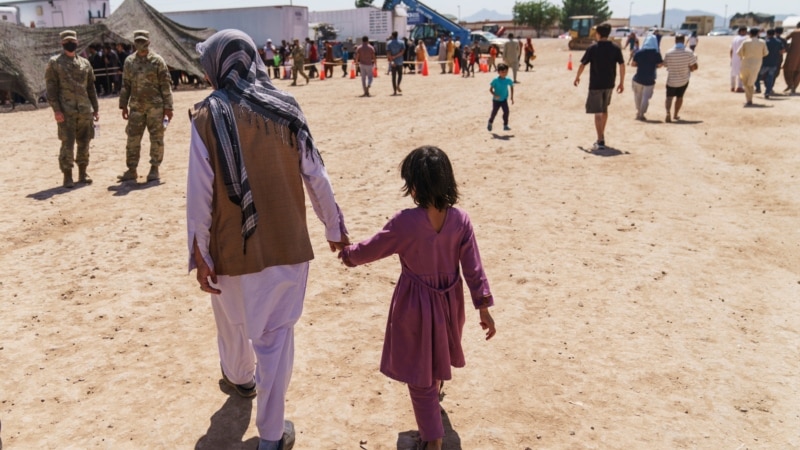U.S. lawmakers included in the $1.2 trillion package of spending bills an additional 12,000 Special Immigrant Visas (SIVs) for Afghans who supported the U.S. mission in Afghanistan and extended the program through the end of 2025. While advocates welcomed the news, they said it is still 20,000 short of what they requested.
President Joe Biden signed the much-awaited spending bills into law Saturday, hours after Congress approved them, avoiding the possibility of a partial government shutdown.
Krish O’Mara Vignarajah, president and CEO of Global Refuge, a refugee resettlement agency, wrote in a statement that it is “encouraging” to see congressional bipartisanship.
“But it’s still deeply concerning that it took the Biden administration and Congress being on the brink of a government shutdown to take action.”
The SIV program is a congressionally authorized program with a limit of 38,500 SIVs available. It offers a path to permanent residence that can eventually lead to U.S. citizenship. The application process for SIVs, including decision-making and approval, takes an average of three years, while resettlement through the refugee program can take up to five years. Applications to either program begin outside the United States.
Representative Michael McCaul, a Republican and chairman of the House Foreign Affairs Committee, said the 12,000 extra SIVs is a “great response” to the promise of evacuating Afghans who worked for the U.S. government in Afghanistan.
“Well, we promised them, we will get them out. The Afghan partners, the interpreters, we left them behind,” McCaul told the CBS news show “Face the Nation” in an interview broadcast Sunday. “And that’s the biggest sin of the Afghan evacuation. I think the 12,000 SIVs is a great response and a great start to that.”
The Biden administration and Senate Republican lawmakers had asked for 20,000 SIVs.
“These visas are essential to enable our wartime allies to receive the opportunity they earned to resettle in the United States, and will ensure the SIV program remains viable,” Shawn VanDiver, president of the U.S.-based NGO #AfghanEvac, wrote in a statement.
The United States and its allies left Afghanistan in August 2021 after nearly 20 years of war, evacuating nearly 130,000 people in the chaotic last weeks in Kabul. Through Operation Allies Welcome, about 88,500 Afghan nationals arrived in the U.S. and resettled in communities across the country.
VanDiver said there is still work to be done, including passing the remaining provisions in the Afghan Allies Protection Act (AAPA) of 2023 and the Afghan Adjustment Act, which would allow a pathway to permanent residency for tens of thousands of Afghans admitted to the U.S. in 2021 and 2022 for humanitarian reasons.
“While this won’t be enough visas to help all our Afghan allies, this gives us some breathing room and will show our partners in America’s longest war that we won’t leave them behind,” VanDiver wrote.
Vignarajah said if the remaining provisions of the AAPA and the Afghan Adjustment Act were in place, it would reduce the demand for Special Immigrant Visas from Afghan evacuees seeking long-term stability in this country.
“The additional Afghan visas are a welcome stopgap measure, but since the budget negotiations are already underway for fiscal year 2025, we call on Congress to continue working to secure protections for vulnerable Afghans who need to seek refuge in the U.S. so that they aren’t living in legal limbo,” she added.

